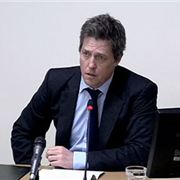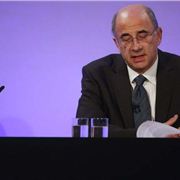PEOPLE scurrying to handcuff, blindfold and gag the press ought to take a step back and be careful what they wish for.
Yes, a small number of journalists have been men (and women) behaving badly, and it may well turn out some will end up behind bars.
'There's a simple way of avoiding media exposure: if you don‘t do it, nobody can write about it'
But the restraints and controls on the press being demanded by actor Hugh Grant, the parents of Madeleine McCann and others, pose a serious threat to a free and democratic society.
The anguish faced by the parents of Madeleine and other victims of the worse excesses of the media are understandable. Yet it is hard to see how legislation will help. A proposed regulator or successor to the Press Complaints Commission will only become involved in individual stories after publication, perhaps with powers to impose ‘fines’ of up to £1m.
In almost five decades of working as a journalist I have seen the impact of newspapers being hauled before the PCC …. No editor, no management and no journalist wants to be hauled before such a body for the equivalent of being publicly pilloried.
Not so long ago a local councillor in Liverpool approached me and said …. Watch us carefully, keep an eye on everything we do, You are the opposition.
Such power! I think not, but the point being made was that in Liverpool, with a powerful administration and a weak opposition, the local media must share the job of watching and monitoring decision makers.
The vast majority of journalists read in horror some of the extreme activities of some sections of the profession, activities alien to all but a few.
 Hugh GrantExposure of such deeds has led to the closure of the world’s biggest selling paper, the News of the World, and the arrest of a number of journalists.
Hugh GrantExposure of such deeds has led to the closure of the world’s biggest selling paper, the News of the World, and the arrest of a number of journalists.
So for the worse excesses of ‘news gathering’ the system already works, and there are existing laws to control it.
The Leveson report says newspapers can continue to report if their stories are in the public interest. Then it suggests a proposed Press Regulator will have responsibility for decreeing what is in the public interest. So who will regulate or monitor the regulator?
Editors, and indeed journalists will not be allowed to serve on any new regulatory body. If people were aware of the level of training journalists have to undergo in law, ethics, code of conduct etc, they would expect, if not demand, the involvement of journalists.
Despite recent examples, it is rare for newspapers to be sued for defamation.
Public figures and celebs are at times embarrassed by revelations of some of their activities. There is a simple way of avoiding such media exposure …. if you don‘t do it, nobody can write about it.
There are people in power and influential celebrities eager to shackle and even silence newspapers.
We live in a new frontier age where social media sites are awash with information, often rumour, speculation or lies. Who can we believe?
 Brian LevesonNewspapers and on-line publications such as Liverpool Confidential are rarely wrong … because we already know we are subject to the laws of libel, a code of conduct and ethics and censure…. And the law.
Brian LevesonNewspapers and on-line publications such as Liverpool Confidential are rarely wrong … because we already know we are subject to the laws of libel, a code of conduct and ethics and censure…. And the law.
People who have lived or worked in countries where there is state control of the media will be aware of the dangers and the risks.
The UK media has been given a bloody nose, shock waves have been sent through every newsroom. Lessons have been learned. Does anybody think for one moment the media is unaware it is on trial. But if the media is itself ‘imprisoned’ everybody suffers the punishment.












